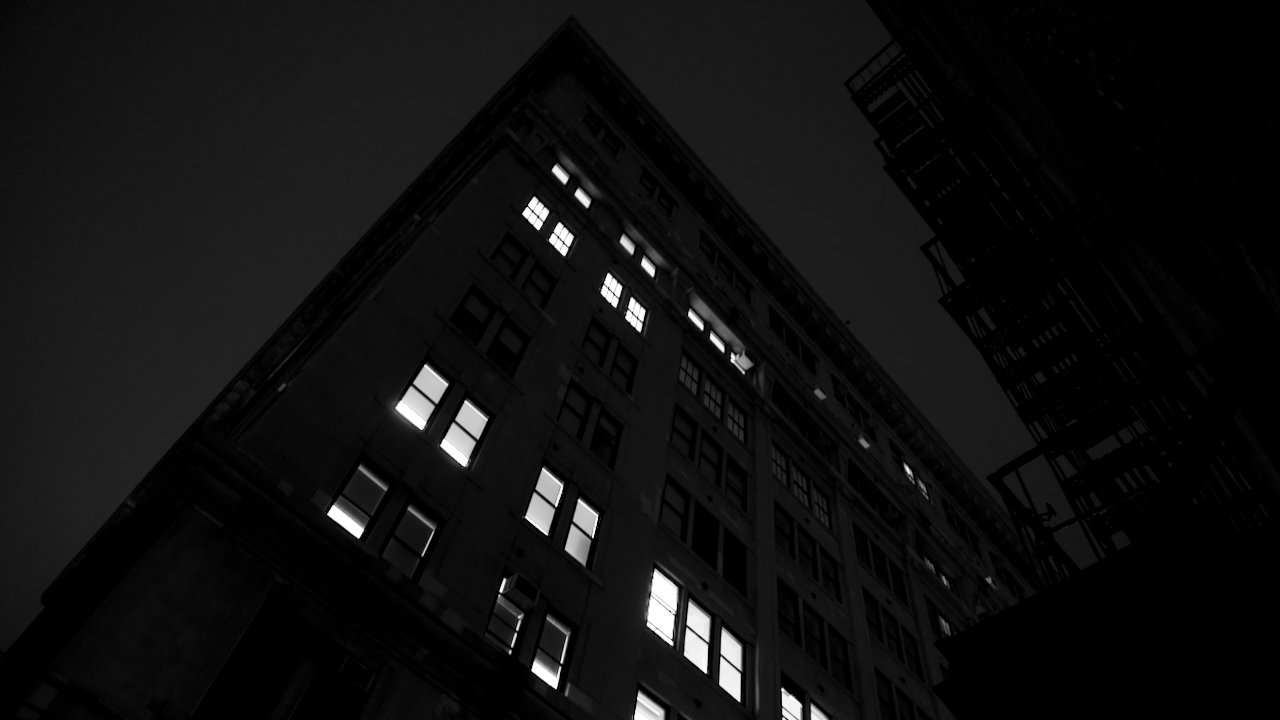Four in the Morning
Long after all the neighborhood lights dim and the city descends to a hush and there’s nothing but the slightest whisper of wind in the distance, you begin to hear, for perhaps the first time, the hum of thoughts in your mind.
Brooklyn 2015
Long after all the neighborhood lights dim and the city descends to a hush and there’s nothing but the slightest whisper of wind in the distance, you begin to hear, for perhaps the first time, the hum of thoughts in your mind. And as you look out the window and into the darkness amid these nighttime ruminations, you begin to notice, for perhaps the first time, how much your mind roars when the world is silent. Your thoughts are reflexive, compulsive, forever bubbling upward, until you begin to question—the clock long past midnight by now—what it all, once it ends, will mean.
The way we are living, timorous or bold, will have been our life.
It takes only one reading of these Seamus Heaney lines to imprint the words into your mind forever. So I wasn’t surprised that these lines, in particular, echoed in my ear when I heard a story this week, the storyteller having undergone a miserable journey into an abyss that rarely offers a return ticket. In the worst moments, I was told, when speaking isn’t possible, when movement has long since stopped, when there is no awareness of the hospital room, that is when the memories begin to surface: bursts of sensation that come in brilliant colors and that overflow with smiling and laughing and excited faces. Every memory, every impression, every fragment, reveals a cramped, dense frame, one that is saturated with emotion. The dreamworld is boisterous, overpopulated, with children and family and friends all jammed into the scene, the edges blurred and narrowing.
What doesn’t seem to appear in these moments, however, are any solitary recollections, even though much of life is, for everyone, a solitary affair. Alone is, after all, how you both start and finish—from womb to tomb—regardless of the long interlude that occurs between those certainties. Nevertheless, despite this storyteller possessing a truly impressive list of accomplishments—professional awards, business successes, personal achievements—all those individual, solitary aspects of life seemed to wash away during this inferno of emotion. There weren’t any memories of peering through a window well past midnight and contemplating an elusive fate. And to hear a story like this just might jolt you awake.
It reminds me of the jolt that comes in the final stanza of Rainer Maria Rilke’s Archaic Torso of Apollo. Rilke begins his poem by describing a statue of the Greek god Apollo, its figure now headless and armless, its age revealed by the damage. Even though it is headless, Rilke tells the reader, you can sense the direction of its gaze by the alignment of its torso. And, somehow, unforgettably, in the last stanza, Rilke twists that missing, unknowable gaze backward. The full potency of his finale arrives when Rilke fashions the incompleteness of the aged statue to address his reader.
would not, from all the borders of itself,
burst like a star: for here there is no place
that does not see you. You must change your life.
Thus it is the silence of the sleepless night, the confinement of the hospital room, the incompleteness of every life, that triggers you to notice the mind’s roar. Of course that roar is forever present even without your awareness. It is simply masked with a breathless conversation or by music that’s too loud or by the day’s agenda or by the ceaseless ping of your phone or by the blare of rush hour traffic. So it is a nice paradox that external silence is what permits you to finally hear what’s internal—in all its cravings and complications.
Life, authentic life, is supposed to be all struggle, unflagging action and affirmation, the will butting its blunt head against the world’s wall, suchlike, but when I look back I see that the greater part of my energies was always given over to the simple search for shelter, for comfort, for, yes, I admit it, for cosiness.
Max, the narrator of John Banville’s novel The Sea, gives us these lines toward the end of a life with more than a few missed opportunities. It is a truth that he admits—perhaps the word is confesses—after a long examination of his years during the lengthy, quiet days of the novel. It seems, he grasps late at night, alone, lost to his memories, that his years have been more reflexive than deliberate. Although, I admit, I hadn’t even noticed until just now that Banville always crowds Max’s memories with people. By the time the novel begins, you might even say that Max is eternally stuck alone at four in the morning, his thoughts consumed by haphazard impressions and relationships and confusions from his past—with solitude as a mirror that reflects the true self back.
And as I write these lines, still chewing on the quotes above, my own mind turns to the tranquility of the city at night, to how every city descends to a hush in those wakeful, restless moments at the window. It is the contrast between the daytime frenzy and the nighttime stillness that always strikes me. It is this very contrast that makes the nocturnal hours in a city so calming. Be it New York or São Paulo or Rome, the raucous din of the day—the jackhammers and horns and traffic—serves only to accentuate the tranquility of the night, and to make the sudden intrusion of that roar all the more jarring to your mind.




